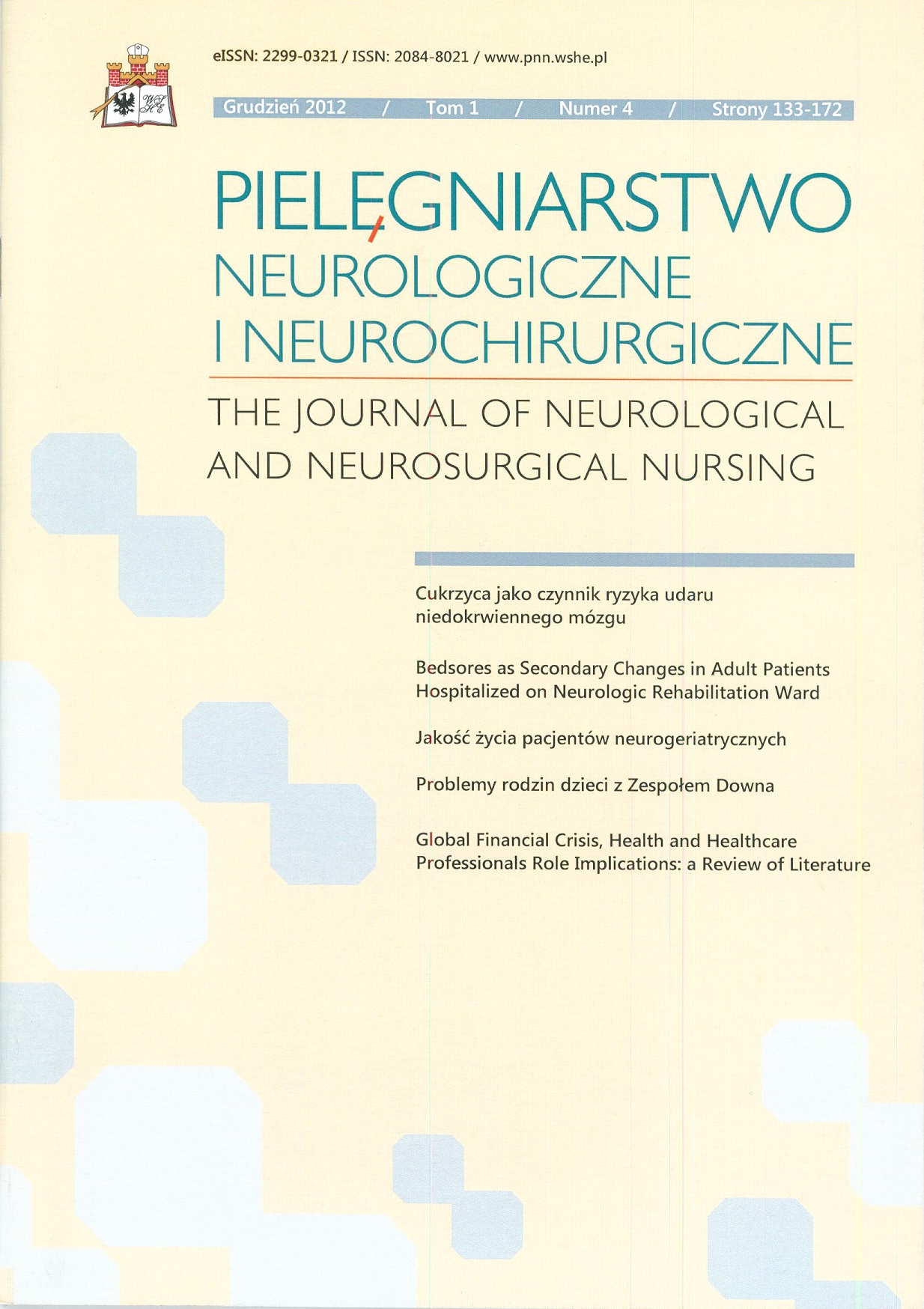Quality of Life of Neuro-geriatric Patients
Keywords
quality of life, neurobiological conditions, neuro-geriatric patientAbstract
Background. Quality of life and old age are closely correlated. The process of growing old is perceived as destructive, progressive and irrevocable. It is determined by both biological and psycho-social factors. Elderly people face difficulties connected with deteriorating health state.
Aim. The work aimed at specifying subjective quality of life of geriatric patients with neurobiological conditions.
Material and methods. The investigation was administered in the cohort of 171 elderly people with neurobiological conditions. The patients were staying in long-term care institutions of central and eastern Poland. The research material was collected by means of the Polish version of the QHOQOL-Bref scale.
Results. Quality of life evaluation in the whole group of elderly people averaged out at 2.84±0.96, while self evaluation within the cohort averaged out at 2.48±1.09. Patients’ evaluations were highest for the environmental domain (average of 11.61±2.32) and social relations (11.39±3.19). Results for the psychological domain averaged out at 10.33±2.91. Patients’ evaluations were lowest for the physical domain (9.92±2.99).
Conclusions. Subjective evaluation of neuro-geriatric patients’ quality of life was on a rather low level. Education significantly differentiated elderly people’s quality of life. Patients of care and treatment institutions evaluated their quality of life higher in comparison with those from nursing and care institutions. (PNN 2012;1(4):151-155)
Downloads
Published
How to Cite
Issue
Section
License

This work is licensed under a Creative Commons Attribution-NoDerivatives 4.0 International License.
Stats
Number of views and downloads: 230
Number of citations: 0
